Program, Speakers & Abstracts
Pre-Conference, Mon 29 March 2021 |
||
| 10.00-12.30 | Introduction to Holistic Management & Regenerative Ag Workshop DETAILS HERE | Conference venue |
| 15.00-17.30 | Farmer Support Group Gathering | Conference venue |
| 17.30-19.00 | Welcome Reception, sponsored by Harris Farm Markets Facilitator Brian Wehlburg |
|
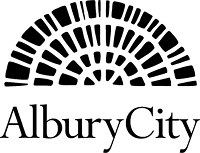
| Frank Zaknich, CEO Albury City Council | Civic Welcome |
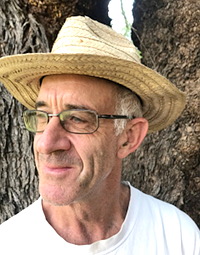
| Sam Johnson, Boxgum Grazing Sam Johnson is part of Boxgum Grazing, an innovative farming business near Young. Utilising the process of Holistic Management we have been able to produce a regenerating landscape and develop a successful “Paddock To Plate” business producing grass-fed beef and lamb and free-range pigs. We have built an on farm butchery and smokehouse to process and package our meat which is sold online and through farmers markets locally and in the Canberra region. Wearing several hats as producer, processor and marketer has allowed us to control the quality of our product and connect with a passionate customer base, who are keen to know how their food is produced and the outcome on the land. |
Paddock to Plate Business using Holistic Management Boxgum Grazing has been developed into into a successful example of a paddock to plate business utilising the process of Holistic Management. Animals are the primary tool to improve the functioning of the ecological processes on the farm, which is leading to an ongoing regeneration of its health and productive capacity. Boxgum Grazing produce, process, market and deliver grass-fed beef and lamb and free-range pigs to customers locally and in Canberra, 160km away. An on-farm butchery has been built to process and package our animals and our customer base covers households and retail food businesses. This development has been a reflection of a passion to produce high quality food and be able to market it to people who want to know where their food comes from and how it was produced. It is also a reflection of a desire to create more viable rural livelihoods and a succession plan for the next generation to be involved in developing the business. |
Conference, Tue 30 March 2021 |
||
| 08.30-10.15 | SESSION 1: The Big Picture — Why Farms Matter |
|
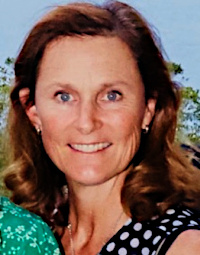
|
Rebecca Gorman, Yabtree West Rebecca Gorman raises beef on Yabtree West near Gundagai in southern NSW using the principles of Holistic Management. The goal is to support happy motivated people and build a strong biodiverse ecosystem. A former journalist for ABC radio and TV, Rebecca loves the philosophy of holistic decision making whereby mindsets are challenged and new ideas encouraged. She is a director of Land to Market Australia and with husband John Sevior is a supporter of initiatives creating renewal in the production of food and the use of land. |
Facilitator |
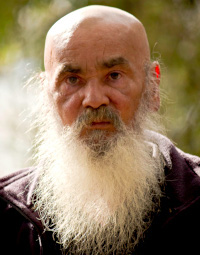
|
Dr Yalmambirra, Indigenous Studies After Dr Yalmambirra gained his Bachelor of Applied Science (Parks, Recreation and Heritage) (Honours), a desire to understand more about his cultural heritage led him to a PhD through Charles Sturt University. Drawing on thousands of old diaries, notebooks and literature written largely from a colonial perspective, his research explored and challenged how Wiradjuri culture was documented. His work examines the Stolen Generations, dispossession and relocation to missions and reserves; impacts of government policies; and how contemporary policies define Indigenous people today. |
Welcome to Country |
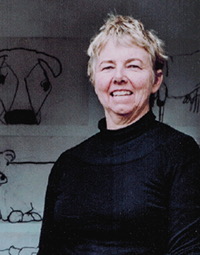
|
Jenny Bell, Earth Canvas Jenny was born into a farming family in southern NSW. In the 1980’s she studied at the National Art School and received her degree from Sydney College of the Arts. Although from an early age she had an accord with nature and an affinity with farm life she assumed that life drawing classes in Darlinghurst and the challenges of her art education would lead to pastures well beyond the farm gate. In a twist of fate she found the reverse was true. The skills of observing, rendering, noticing and persisting acquired during her training were anchored, when after a decade away - she returned. Over time unexpected parallels between the art of farming and visual art revealed themselves. The adoption of holistic management principles and the processes involved in the regeneration of a farm sparked a deepening of these symmetries. The EarthCanvas project, where Jenny was the artist matched with farmers Anna and Michael Coghlan, was a catalyst for her to examine, understand and articulate the meeting of these worlds. Jenny will share her insights into this creative convergence. |
Artists and Regenerative Agriculture "Education is not the filling of a pail but the lighting of a fire," said the Irish poet WB Yeats, Whenever I am around farmers who consider themselves students of regenerative agriculture I feel this fire. The Earth Canvas project threw me the challenge of working with Michael and Anna Coghlan, and gradually it was revealed to me that what distinguished their property was what you couldn’t see, what nature was being allowed to do with their stewardship and the forces they were harnessing with their grazing animals. In the pursuit of art, we begin with the familiar and don’t lose our balance but if we stay the course we want ever richer, more challenging experiences that attempt to encapsulate in visual terms the complexity of our lives. This also applies to the paradigm shift holistic management ushers in, priorities change, the familiar is seen anew, the whole becomes an almost self-regulating entity and a thing of beauty. Marie Curie, the first woman to win a Nobel Prize, asks us to "replace our fear of the unknown with curiosity." Whether we be artists or farmers it sounds like good advice! |
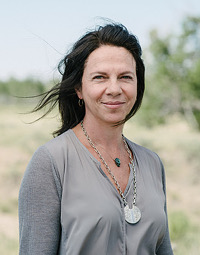
| Daniela Ibarra-Howell, Savory Institute A native Argentinian, Daniela was born and raised in Buenos Aires. She is an agronomist and holds an MS in Natural Resource Management and Economics. With over 25 years of experience in ranching, Holistic Management, and ecosystem restoration programs, Daniela co-founded with Allan Savory and others the Savory Institute and became its CEO in 2011. Since then she has led her team in the design and implementation of a revolutionary global impact strategy for large-scale restoration of grasslands to accelerate solutions to global climate change and food and water insecurity. Daniela serves on the boards of Slow Money (USA), and the Africa Center for Holistic Management (Zimbabwe), and is a partner and advisor to the Common Earth, EverGreening initiatives and the Global Roundtable for Sustainable Beef (GRSB) among others. Daniela is a member of Women in Ranching, Pleaides, and Pampeanas Regenerativas women networks, elevating and activating the role of women in fostering a more beautiful and regenerative world. She holds executive degrees in Advanced Negotiation and Conflict Resolution from University Notre Dame. |
Introduction to Allan Savory [via video link] Holistic Management is a valuable framework to assist human design and decision making, including the selection and implementation of context-relevant practices in agricultural settings. |
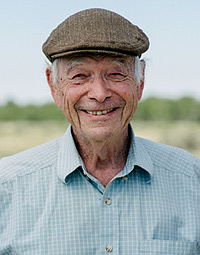
| Allan Savory, Savory Institute Allan Savory, born in Zimbabwe and educated in South Africa, pursued an early career as a research biologist and game ranger in the British Colonial Service of Northern Rhodesia (today Zambia) and later as a farmer and game rancher in Zimbabwe. In the 1960s he made a significant breakthrough in understanding what was causing the degradation and desertification of the world’s grassland ecosystems and worked with managers on four continents to develop sustainable solutions. In 1992 Savory and his wife, Jody Butterfield, formed a non-profit organization in Zimbabwe, the Africa Centre for Holistic Management, and in 2009, with a group of colleagues, they co-founded the Savory Institute in Boulder, Colorado, building up a network of innovators and leaders committed to serving their regions with Holistic Management training and implementation support. Savory’s book, Holistic Management: A Commonsense Revolution to Restore Our Environment (Island Press, 2016), describes efforts to find workable solutions to overcoming many of the problems besetting communities and businesses today. In 2003, he received Australia’s International Banksia Award, in 2010 Savory and the Africa Centre received the Buckminster Fuller Institute’s Challenge award, for work that has 'significant potential to solve humanity’s most pressing problems,' and in 2015 he received the Mary G. Enig Integrity in Science Award. A TED talk Savory gave in 2013 has been voted one of the 50 most intriguing TED talks of all time. |
Reductionist Thinking, Holistic Management and Regenerative Agriculture [via video link] No group of farmers in the world has weathered droughts, fires, bad agricultural policies and financial hard times better than those beginning to manage holistically. No surprise, because almost all that ails us is linked to one underlying cause — reductionist management. Join us in learning from people who are leading the way to a new and truly regenerative agriculture. |
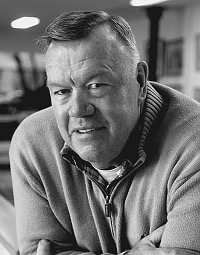
| David Farley, Matrix Commodities David Farley is an accomplished Executive Leader, Chairman and CEO with a life-long, global career in agribusiness. David achieved a portfolio of success leading publicly listed and private organisations with revenues in the hundreds of millions through significant growth, transformation and change. Leveraging a broad knowledge base of soft commodity trading, international investment, distribution network design and optimisation and co-operative sales and marketing structures David is a passionate agricultural policy advocate and global markets, technology and innovation enthusiast, a recognised thought leader, David holds strong networks and relationships with institutional agricultural fund investors (USA, UK and Australia), government stakeholders, and capital markets and across the global agribusiness sector. |
Regenerative Agriculture, Better Food and Health The USA spends ~$1.5T annually on food and $1.9T on healthcare related to poor nutrition (comparison - total USA defence budget is $750b). The current food system ended starvation, but created a obesity epidemic as cheap ultra-processed food increased diabetes and cardiovascular disease. Entrepreneurs can solve real problems by attracting investment and personal capital to redirect into a better food future, marketing sustainable agricultural production, winning supermarket shelf space, changing the cost of health insurance, and securing proven sustainable agricultural practices into agricultural property asset valuation models. |
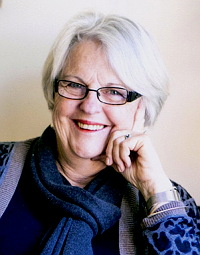
| Lyn Sykes
Lyn has been a leader in the traditionally male world of agriculture, and for more than three decades she has made a significant contribution to improving skills relating to communication and succession. Lyn is recognised as the pioneer of a family-focused approach to succession planning, centered on a facilitated family meeting clarifying the visions and goals of each member in order to develop a shared way forward. At the height of this work she was facilitating in excess of 100 family meetings a year in all states. Lyn was the independent chair of the Environmental Flows Group in the Macquarie River from its inception until 2013. She has had considerable involvement in leadership, communication and conflict resolution workshops, and believes when groups work cooperatively and harness the strengths of these differences great things are possible. |
Social Consequences – Why Farmers Matter Why people on farms matter, especially how they matter in relationships, both business and personal. The potential impact people on farms can have on sustainability, succession gender and the ability to manage any significant change. What the downsides of loving your land might be, particularly in difficult times. |
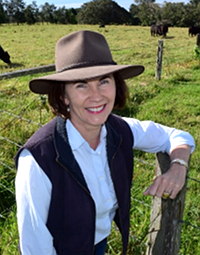
| Lorraine Gordon, Regenerative Agriculture Alliance/SCU (Sponsor) Lorraine founded the National Regenerative Agriculture Alliance at Southern Cross University. As Director of Strategic Projects at SCU, she acts as a conduit between industry and research, delivering regenerative agriculture solutions nationally. She has assisted over 28,500 farmers, fishers and foresters to progress projects and establish cooperatives to benefit their industries. Lorraine was awarded the 2018 Rural Community Leader of the Year for Australia, the 2019 Australian Financial Review Award and the 2019 BHERT Higher Education Engagement Award, and was also a finalist in the 2020 Australian of the Year Award. Lorraine is a carbon farmer and holistic beef cattle trader at Ebor in NSW, and director of successful tourism, agricultural and health businesses. A graduate of the Australian Rural Leadership Program and previous NSW ABC Rural Woman of the Year, Lorraine is completing her PhD in Ecological Economics through UNE, looking at triple bottom line comparisons between regenerative and conventional grazing systems. |
University Course in Regenerative Agriculture Lorraine will talk about the latest initiatives in education and research in regenerative agriculture and carbon farming. She will also share her experience as a farmer independently registered for carbon farming with the ERF including the pitfalls. |
| 10.15-11.00 | Morning Tea | |
| 11.00-13.00 | SESSION 2: Building Natural Capital — Farm Performance OptionsFacilitator: Rebecca Gorman |
|
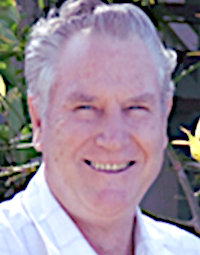
| Dr Terry McCosker, Resource Consulting Services Terry McCosker is one of the great innovators of Australian agriculture who has had an inordinate impact on agricultural practises over many years. On this basis the Central Queensland University conferred on Terry the degree of Honorary Doctor of Agribusiness in March 2015. Terry is a Churchill Fellow, a Fellow of the Tropical Grasslands Society, has chaired the Australian Beef Expo, and sat on numerous advisory committees. One of his greatest lifetime achievements has been to effectively bridge the gap between the contesting paradigms of traditional agriculture and regenerative agriculture, helping to ensure the long-term survival of Australian agriculture and its farming families. Terry is an internationally acclaimed teacher and has worked in research, extension and property management in both government and private sectors for over 50 years. In his research era, Terry published over 40 papers and made several world-first discoveries in the 1980’s. Terry co-founded RCS in 1985 which has set the benchmark for capacity building in rural and regional Australia and has been independently rated (by Commonwealth Govt survey) as the most trusted source of farming knowledge in Australia. Terry is also a pioneer in the field of soil carbon and carbon farming, and in this capacity he is Chairman of Carbon Link Limited, an agricultural carbon aggregator. Carbon Link was awarded a Commonwealth Commercialization grant of almost $1m in 2016 and was the most Innovative business in the region in 2016. It has baselined 16,000ha. |
What we Know About Regenerating the Food Production System One of my earliest introductions to holistic agriculture was learning about the four ecological indicators, which in 1989, were water cycle, mineral cycle, energy flow and succession. Two of these have changed, but I want to illustrate where the concept of energy flow is today. The study of genomics and metabolomics in soil biology has given energy flow a whole new meaning. The focus now is — "how do we build photosynthetic capacity?" It is now known that in most agricultural systems, the PC is operating at 10 to 15% of theoretical capacity. Some research sites have gone from 11% to 56% in 7 years, a five-fold increase in dry matter yield. Soil biology and mineral presence are subsets of achieving such increases in productivity. Carbon underpins all the old indicators. Fortunately it is now a tradeable commodity and in many grazing landscapes can double net farm income. |
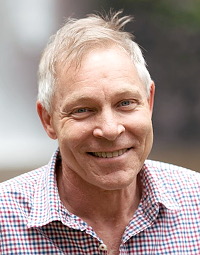
| Peter Richardson, MaiaGrazing Peter is CEO of MaiaGrazing, a company providing farm management and decision support tools for graziers. Peter was a cofounder of Natural Carbon, a carbon project developer generating credits for landowners focussed on grazing and grassland management. Previously he founded InfoMedix, a company providing electronic medical record software. Peter has consulted widely as an IT architect, designing systems in areas as diverse as agriculture, wholesale banking, telecommunications, hospitals, online games and children's education. |
Data & Benefits of Planned Grazing Regenerative agriculture holds the promise of increased production and profitability, while also improving the resilience and capacity of the land. A key tenet of holistic-planned grazing is that increasing grazing density through paddock subdivision will deliver increased yields, while also increasing land function and carrying capacity over time, but researchers have struggled to validate at lab scale the extraordinary results we see anecdotally achieved in the field. However the increased use of digital tools is providing significant global datasets that can be harvested for insight. From a dataset accumulating a massive number of grazes, we quantify the business case for increased graze density arising from paddock sub-division and holistic planning. This landmark study uses real data on real farms to trace the actual outcomes achieved across a wide variety of land types, climatic zones and enterprises. Once and for all we can allay doubts as to the benefits of this approach — and we have only just scratched the surface of the insights this data can reveal. |
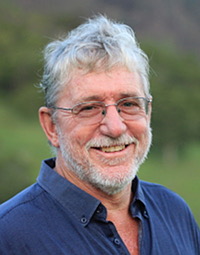
| Brian Wehlburg, Inside Outside Management No-one is more passionate or has done more to educate people about Holistic Management and Regenerative Ag' in Australia. From Zimbabwe, Brian Wehlburg migrated to Australia in 2001. His initial experience as an educator was gained as an instructor with the Army Parachute School, then he obtained an agricultural diploma. After two years as a farm manager he started his own agricultural enterprise in 1981, growing crops for export, breeding cattle and operating a safari/wildlife conservancy. An introductory Holistic Management course in 1995 with Allan Savory inspired Brian to use grazing as a tool to improve the environment, with resulting significant pasture improvement and regeneration of water seeps. In 1998 he completed the Holistic Management Educator’s course and started teaching. Brian has also worked as a pasture/cattle manager, a grazing consultant, and managed a property in New South Wales. He enjoys sharing his passion for environmental improvement and grazing management. |
Holistic Management Approaches to Regenerative Agriculture Creating a clear understanding of the differences between DIRECTION and DIRECTIONS as each of us head into uncharted waters: how Holistic Management and the creation and use of a Holistic Context is of great benefit as we shift the agricultural paradigm and support the revolution towards Regenerative Agriculture. As this shift in thinking occurs there will be an explosion of new methods, ideas, techniques and technology to support the new agriculture. The power of having a Holistic Context to enable you to work out which choices are right for you, your business and your family through this constantly changing scenario will be enormous. Continual monitoring towards your Holistic Context will ensure that you are moving in the right direction as things change and evolve. |
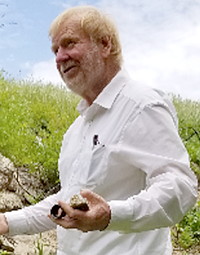
| Walter Jehne, Regenerate Earth Walter Jehne is an internationally recognized soil microbiologist and innovation strategist. He has immense field and research experience in soils, grasslands, agriculture and forests at local, national (CSIRO and Science Adviser to Australia’s National Soil Advocate), international (UN) level. Walter's specialisation is the role of soil microbes’ symbiotic processes in the ecology of diseases, plant health, nutrient and waste cycling, soil pedogenesis and the regeneration of bio-systems. Decades of research have made him expert in plant root ecology, mycorrhizal fungi, glomalin, and soil carbon formation. He also has worked on biology's enormous influences in hydrological cycles, weather patterns, regional and global cooling, and cloud formation and rain precipitation. Recent work has focused on commercializing leading bio-innovations which will urgently help restore agro-ecosystems and urban agriculture and ecologies. Walter is determined to advance the practical verification, application and extension of these innovations, including for cities and their supply chains, to sustain the current 8 billion and projected 10 billion people by mid-century. |
Grazing Ecologies in Regenerating Australia’s Natural Capital and Safe Future Australia is aridifying, degrading and burning dangerously, and unless addressed this decade we risk further loss of rangelands and forests. We need new visions, values and practical solutions to secure our landscapes and future, and to recognize that our economy and society depends on these bio-systems, their resilience, buffering, cooling, biodiversity and bio-productivity. We must rehydrate landscapes by ensuring rain infiltrates into healthy soils and our ‘in-soil reservoirs’ to sustain the longevity of plant growth and regional cooling. We can only do this by regenerating the Earth’s soil carbon sponge, with perennial pastures and grazing ecologies that re-create our former deep ‘mould’ soils that retain and enable plants to use most raindrops; by extending the vision and practices of innovative farmers bio-sequestering up to 10 tons of carbon per hectare per annum back into their soils, and by extending ‘Regenerate Australia’ to retain 1 million Giga litres of extra rainwater, protected from evaporation and at fraction of the cost of dry dams. We only have this decade before dangerous extremes limit our last chances to do this. |
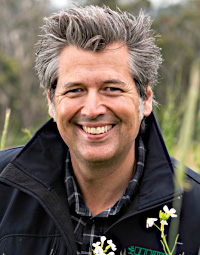
| Matthew Warnken, Managing Director, AgriProve (Sponsor) Matthew is MD of AgriProve, Australia’s first one-stop-shop for soil carbon. He founded and chairs Corporate Carbon, one of Australia’s leading multi-sector carbon developers operating under the Emissions Reduction Fund. Matthew has extensive experience in resource recovery and renewable energy. He trained in natural resource management at the Australian National University, has a Masters of Engineering Research, and a Business Masters in early stage commercialisation. AgriProve takes farmers on the journey from building soil carbon on farms through to carbon credit sales, and has more than 100 soil carbon projects declared under the Australian Government’s Emissions Reduction Fund. |
Carbon Farming Made Easy Registering for a soil carbon project under the Emissions Reduction Fund (ERF) with AgriProve, gives you compliance grade carbon credits at no net cost. But more than that it gives you validated proof if your land is regenerating. Increased soil carbon levels mean your soil health, biodiversity and water holding capacity are improving. This leads to increased productivity and profitability on farms. If we want to make a material difference to climate change by sequestering carbon in soils, we need to change the way we farm across the landscape. This will only happen if it is easy for landholders to get on board. We’ve spent the last five years talking with farmers to find the best ways to make the system work for them – whether they’re on a small farm or a large landholding. The AgriProve approach accounts for future property sale or succession planning and nothing is registered on title. There are also no audit fees. Pioneer regen farmers have faced barriers to participation in ERF projects, but we have found a way to include them. Using remote sensing reporting we can assist pioneers to be rewarded for their innovation and initiative. |
| 13.00-14.15 | Lunch — Young Farmer Highlights | |
| 14.15-15.30 | SESSION 3: Investment in Regenerative Agriculture — PANEL on New Farm Business and Investment |
|
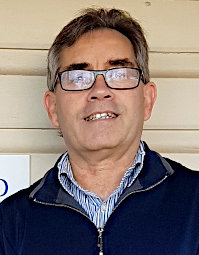
| Mark Gardner, Vanguard Business Services After completing Agricultural Science at university I worked as a wool classer, jackaroo and property overseer. In 1987 I was one of the first private agronomists, before becoming a farm consultant and starting Vanguard Business Services in Dubbo in 1996. Vanguard works with some 120 farm families across the eastern States and has won a number of Regional Business Awards. I have been a Holistic Management Educator for over 25 years and have trained and mentor other educators. We help farmers heal the land. It needs it. I work mostly with farm family businesses, coaching around land, animals, people, wellbeing and profitability,within the Holistic Management Framework. I also work with universities and R&D corporations on innovative research projects documenting the impact of regenerative agriculture. |
Panel Facilitator |
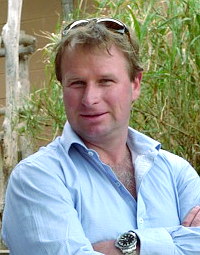
| Harry Youngman, Tiverton Investment Harry Youngman first started to challenge the status quo in his home region near Hamilton in SW Victoria. Soil health has been a focus since the early 2000s, culminating in 2012 with the establishment of a compost production facility to build soil carbon and health. Harry teamed up with others to establish Tiverton Ag Impact Fund, which addresses soil health and biodiversity loss with activities such as soil amelioration programs, biodiversity corridors, threatened species sanctuaries and breeding programs, in conjunction with horticulture, including 430 Ha of stonefruit and table grapes, 1000 Ha olives, 12000 Ha of broad-acre and 35000 Ha of pastoral management with forest and wetland management. |
On the Ground Investing in Regenerative Agriculture Our thesis was to approach the move to regenerative ag in reverse order. We identified the outcomes desired in terms of residual DM, diverse rooting architecture and using sunlight to drive a 'liquid carbon' phenomenon, coupled with whole farm biodiversity, and adopted a principal of "Stop doing bad and allow some healing," then build. Our geography in SW Victoria, with 700mm highly reliable rainfall, allowed the transition to a healthier production system, with an 80% increase in stocking rate and production per Ha. A few of the key initiatives that have helped achieve this include: Introduction of a compost manufacturing facility, establishment of a techno grazing system, and benchmarking of each enterprise for a long period to establish the profit drivers. Experiences in soil health, biodiversity and management gave rise to the establishment of Tiverton Ag Impact fund, which was established in 2017 and has grown to more than $100m of assets owned and operated. The journey of change takes time and more importantly a shift in mindset. |
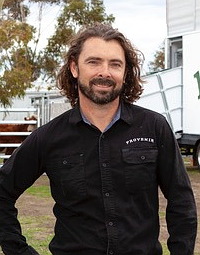
| Chris Balazs, Provenir Chris Balazs is the CEO and Co-Founder of Provenir, one of the leaders pioneering true paddock to plate produce, through on-farm mobile abattoir technology. Chris’s innovative and adaptive approach to an emerging sector of the food industry has seen Provenir achieve great growth over the last year, and has bought a whole new disruptive technology to the red meat industry that will improve animal welfare standards whilst increasing farmers slice of the value chain A scientist by profession Chris has had the opportunity to work on global technology transfer projects and complete his MBA. He recently transitioned from this successful 20yr corporate career to focusing full time on ag-tech innovation. Previously a scientist by profession, now a farmer by choice, his combination of scientific knowledge, farming practicality and business acumen has enabled the dream of on-farm livestock processing to become a reality in Australia. |
On Farm Slaughter As the environmental and social benefits of regenerative agriculture are becoming better understood by politicians, regulators and the agricultural community, the opportunity for this style of agriculture, to become the 'new normal' - is clearly in front of us. Though for this to occur on a wide scale basis, the financial benefits have to be realised, not only at the farm gate but right across the supply chain. Developing a viable market for regeneratively produced products requires a concerted approach to educate consumers as to how their purchasing decisions impact the world they live in. Provenir — Australia's first and only mobile abattoir — has actively sought regenerative farmers to collaborate with to bring the highest welfare beef to Australia. A disruptor in the red meat industry, Provenir is leading the industry in supply chain traceability and food provenance. |
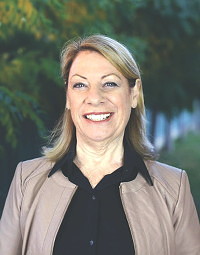
| Louisa Kiely, Carbon Farmers of Australia Louisa holds a Bachelor of Agricultural Economics and an Advanced Diploma of Farm Management. She also trained in Holistic Management and from 1998 to 2017 was a fine woolgrower in the Mudgee NSW district. In 2006 she was selected by the CMA to be trained in farm planning, the carbon cycle and soil restoration, and became convinced that soil and tree carbon and reducing farm emissions could solve many agricultural and climate change problems. She co-founded the Carbon Coalition Against Global Warming in February 2006, and was recognised for her work in 2008 as NSW Runner up RIRDC Rural Woman of the Year. Louisa and husband Michael are co-founders of Carbon Farmers of Australia, which runs the National Carbon Farming Conference & Expo.CFA developed the first training courses on carbon farming approved by Government programs and has trained hundreds of farmers in the principles of carbon farming and trading. CFA is a project developer under the Emissions Reduction Fund, with close to 200,000 ha under Carbon Abatement Contracts with the Federal Government. |
Carbon Farming and Associated Challenges Farmers are really looking for alternatives, and the soil is, as we all know, the largest natural carbon sink that we have. But farmers are not being put at the centre of 'Carbon' or 'Regen Ag' jobs. This conference gives an opportunity to perhaps answer a question now the fires have been so bad: how can the Regen Ag movement assist fire-affected farms to return to better productivity in their recovery? What does Holistic Management offer when one starts from such a blank canvas and why is this important? Because its a huge opportunity to showcase what regenerative farming could do. I'd like to brainstorm these questions at this conference. |
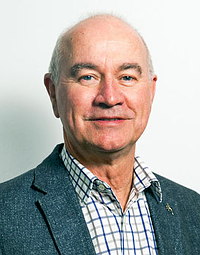
| The Hon. Gary Nairn AO, The Mulloon Institute After 25 years in the surveying and mapping profession, including his own business, Gary Nairn was elected the Federal Member for Eden-Monaro in 1996. His 12 year parliamentary career included Parliament Secretary to PM Howard with responsibility for water reform and Special Minister of State with responsibility for e-government, the AEC and five GBE’s. Post Parliament he operated his own spatial sciences consultancy, was the inaugural Chairman of the NT Planning Commission and Chairman of the Tasmanian Spatial Information Council. Gary has been Chairman of The Mulloon Institute since 2016, is Chairman of the Duke of Edinburgh’s International Award in Australia and is a Board Member of the NSW Biodiversity Conservation Trust. He was made an Officer in the Order of Australia in 2015 for his contribution to the Parliament of Australia; to communities of NSW & NT; to surveying & spatial sciences; and to disability support services. |
Regenerative Agriculture Initiatives The Mulloon Institute (TMI) is a not-for-profit research, education and advocacy organisation that actively demonstrates, monitors and shares innovative approaches to regenerative land management. TMI aims to connect environment, farming and society through practical demonstrations at its living laboratory – Mulloon Creek Natural Farms – and beyond. It is rebuilding resilience in the Australian landscape which produces the water, soil and biodiversity required to produce food and water security. TMI aims to support the regeneration of 100 agricultural landscapes over the next 10 years. Its current "catchment scale" project is with landowners from the Mulloon Catchment. Investing in the repair and rehydration of landscapes should be the first and vital investment a farmer should do towards becoming a regenerative agriculture exponent. In this regard TMI is demonstrating how to rebuild soil fertility, fix more carbon in the landscape, restore lost biodiversity, improve water quality and availability and moderate climatic extremes. This leads to increased agricultural productivity, higher quality nutrient dense food and improved human health and community cohesion. |
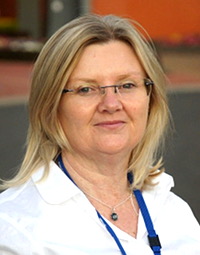
| Tess Herbert, RMAC Beef Sustainability Framework Chair As a farmer, feedlot owner-operator and farming advocate, Tess Herbert has a unique perspective on Natural Capital and the benefits it can bring to the beef industry. Tess chairs the steering group of the Australian Beef Sustainability Framework – a whole-of-industry initiative to define sustainable beef production and report performance. The Framework works with technical experts to use decades of satellite data to measure and report on vegetation changes on beef-producing properties. The Framework also reports on the industry’s progress against its commitment to be carbon neutral by 2030, as well as other priorities related to Natural Capital. |
RMAC Beef Sustainability Framework Beef producers need to play a key role in protecting and improving Australia’s Natural Capital, as they manage about half of the nation’s landmass, including areas that cannot support other food production. You can’t manage what you don’t measure, so the Australian Beef Sustainability Framework is demonstrating how beef producers care for the environment and the efforts they’re taking to continuously improve. This will shore up access to markets and financing, meet customers and consumers’ demands, and protect the industry’s social licence to operate. |
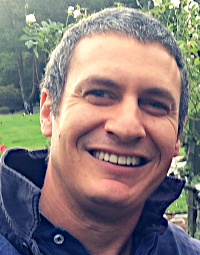
| Andrew Ward, Ethical Fields Andrew was a teen when his late father Bruce Ward first encouraged Allan Savory to the Land Down Under. Bruce went on to become a respected Holistic Management educator and some of his knowledge rubbed off on Andrew, who studied Horticulture Science at Sydney University before commencing life in small business and entrepreneurship. From 2014 to 2020, Andrew was a director of the peak body for crowdfunding (Crowd Funding Institute of Australia), working closely with the government to create and implement the Equity Crowd Funding laws now used by SMEs to raise community capital. In 2017, Andrew co-founded incubator.coop and joined Ethical Fields, a consultancy that is also catalysing the Protected Habitat Farmer Mutual. In 2019 Andrew became Treasurer of The New Economy Network of Australia. |
Catalysing the Protected Habitat Farmer Mutual In his role at Ethical Fields, Andrew is catalysing the Protected Habitat Farmers Mutual. The mutual is a way for farmers to aggregate market power in emerging environmental markets, which in turn can deliver better outcomes for farmers and reduce their transaction costs. |
| 15.30-16.00 | Afternoon Tea | |
| 16.00-17.30 | SESSION 4: Farmers and Their Own ApproachesFacilitator: Rebecca Gorman |
|
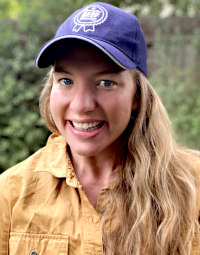
|
Jessica Loughland, HW Greenham & Sons (Sponsor) Jessica Loughland is the Livestock Supply Chain Manager for HW Greenham & Sons who operate three export beef plants in Tongala VIC, Moe VIC, and Smithton TAS. In her role, she looks after Greenham’s natural beef programs, producer engagement, digital feedback systems, and the company’s supply chain sustainability initiatives. Jessica studied agricultural science at Charles Sturt University and, over the past decade, has worked in the red meat processing sector across livestock, sales, business development, and finance functions. Jessica is a passionate advocate for the Australian beef industry and has recently been appointed to the advisory group for the Environmental credentials for Australian beef project. |
Greenham’s Support of Young Farmers
Greenham are ardent supporters of providing opportunities for passionate young people in our industry as a means to advancing Australian agriculture and supporting rural communities. The industry and our operating environment are ever evolving and our future success will be dependent on having a strong pipeline of skilled young people coming through with new perspectives and ideas. |
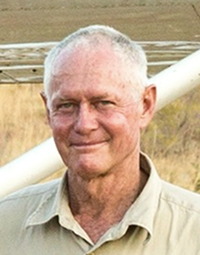
|
Chris Henggeler, Kachana WA Chris Henggeler is a student of eco-system function; his study takes place in the landscape where physics and biology blend in complex and dynamic life-shaping processes. Since late 1991 he and his family have been based on "Kachana" where they live in a camp exposed to the elements. On a patch of desertifying country abandoned by its earlier inhabitants and ignored by industry, Chris believed more was possible: there was sunshine and rain, critical ingredients for biodiversity and rural productivity, and the key was management. Chris, an Australian land-manager, was a Rhodesian born and raised farm boy with Swiss ancestry. His study of how nature functions is by observation, reading, courses, experimentation and comparing notes with other land-managers, aware that to a great extent the challenges facing Australian agriculture today are human made. After over 40 years on this continent, Chris remains passionate in his quest to see humans and the species that they have brought with them become part of the solution. |
Challenges in Northern Australia Without community support it is now too late to effectively address issues like rehydrating landscapes and the mitigation of the effects of drought, flood and fire. We make all our mundane decisions as if we expect to wake up the next morning, i.e. ‘as if we will live forever’. (Without such an approach we would have gone extinct generations ago. The "fault in the software" has had to do with planning ‘as if there was no tomorrow’.) It is now time to begin planning in a manner ‘as if our grandchildren and their friends mattered’. Managing holistically would allow us to do this. Regenerative practices will pave the turn-around, and it appears that Holistic Management is the "Rolls Royce" of the models now on offer. |
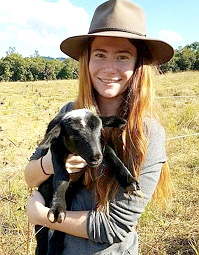
| Emily Little, Young Farmers Connect Emily's roots in agriculture grew out of a deep concern for the environment and animal welfare. The urgency for change broadened to include rural communities, the people and their livelihoods as well as landscape regeneration. She now co-manages a multi-enterprise farm, Old Hill Farm, on NSW’s Mid-North Coast, working towards providing pastured lamb, vegetables, and sustainably sourced timber to the local community. In November 2019, Emily and her husband were forced to flee their home when the bushfires tore through the village of Bobin. They have only recently returned to their land to begin the task of rebuilding from scratch. Their work now focuses on engaging the wider community in landscape restoration to mitigate future climate-fuelled extreme events. In addition, Emily is a key coordinator of the Young Famers Connect (YFC), an organisation dedicated to providing assistance and resources for young or new farmers who are entering the industry. |
Regenerative Agriculture and Young Farmers Old Hill Farm and our context: the drought, the fire, the floods. Holistic Management and talking with people who you haven’t before and building relationships — community, not government, got each other through the disaster. Mobilising landholders in the community to action landscape hydration now, not to wait until the next drought. We need more communities coming together and finding ways to be resilient together. Now. Bottom up, not top down approach — the power of grassroots. |
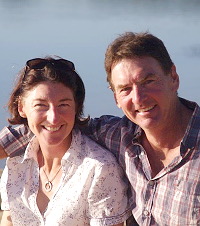
| Peter and Bundle Lawson, Riverina, NSW Pete and Bundle Lawson grew up on farms with a lot of family history behind them, and now run both family properties: Gundillawah in the Mundarlo valley and Trewalla at Book Book. Since 2008, the Lawsons have used Holistic Management as a framework to help them move towards their goal of producing high quality, healthy food and fibre in a sustainable, profitable manner whilst regenerating and improving their resource base. They produce what they believe to be happy, healthy and productive livestock in a quiet, stress-free manner. They aim to keep production costs as simple and low as possible — questioning every expense to see if it really fits with their goals. Things have not always been plain sailing, with some very challenging seasonal conditions and seemingly only gradual changes in things like plant species and diversity. But Pete and Bundle are happy that they are striving towards their goals in a manner they believe in. |
Family Farms We grew up on farms on the south-west slopes of NSW and first did Holistic Management courses individually, fresh out of agricultural college and university, in 1996 and 2001. Pete took over the management of his family’s farm, Trewalla, in 1998 and hasn’t really stopped fencing since, except briefly to marry in 2004! After struggling financially, mentally and physically during the Millennium drought, we decided things had to change. We thought we were thinking holistically, but certainly weren’t acting holistically, so in 2008 we re-did the HM course together and the effect was immediate. It still hadn’t rained, we still had very low stock numbers and an unnaturally close relationship with our bank manager, but we had regained our purpose and had clarity about where we wanted to be. The HM focus and decision making process has helped us through three children, two family successions, an additional property, two major droughts and a bushfire. Despite doubts and plenty of mistakes, we feel we are still trending in the right direction! |
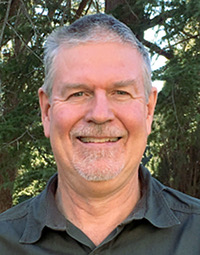
| Tony Hill, Land to Market Australia Tony teaches Holistic Management in NSW and is an accredited professional with the Savory Institute. With a background in economics, policy making, regional development, ecology and biodiversity, he has worked for government and consulted on design applications for Cooperative Research Centres. Tony chairs the Australian Holistic Management Co-operative, has been a member of the Upper Shoalhaven Landcare Council, and is an accredited teacher of the NSW TAFE Holistic Management Diploma. He is the founder of the Land to Market Australia project incorporating Ecological Outcome Verification. |
Ecological Outcome Verification as Fundamental to
Regenerative Agriculture Many people are now stepping forward to support sustainable and regenerative agriculture. In the face of global challenges such as mega fires, droughts, biodiversity loss and climate change, our farmers are experimenting with their farming practices, and consumers and businesses are realising that their purchases can contribute to planetary health. But how can we know if agriculture is truly regenerative? How can we go beyond a sustainable future, where our problems continue to wound the planet, to a regenerative future, where we heal those wounds? And how can we use human intelligence to measure the complexity of ecosystems? For the first time we have a tool, Ecological Outcome Verification, that can let us monitor and clarify whether farming practices are improving or degrading the health of our landscape. |
| 18.30-21.30 | Conference Dinner, sponsored by Provenir | ||
| Chris Balazs, Provenir (Sponsor) | |||
Gabrielle Chan In Conversation with Regenerative Farmers — PANEL: What will Agriculture in Australia Look Like in 2030 and 2050? |
|||
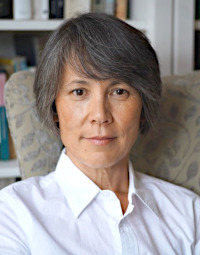 |
Gabrielle Chan, Journalist and Author Gabrielle Chan has been a journalist for more than 30 years. She began covering politics in the 1990s for The Australian at the NSW parliament and in the Canberra press gallery. She has worked for Guardian Australia since 2013 in roles including political correspondent and Politics Live blogger. The city-born daughter of a Singaporean migrant, Gabrielle moved to a sheep and wheat farm in 1996, where she noticed the yawning gap between parliament and small town life. The result is Rusted Off: Why Country Australia is Fed Up, which was shortlisted for the 2019 Prime Minister’s Literary Awards and the 2020 Walkley book prize. Gabrielle is currently working on her next book on food, farming and landscape. |
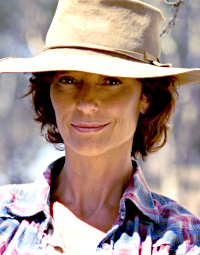 |
Rachel Ward Rachel Ward and Bryan Brown bought Eastbourn in the Nambucca Valley in 1987, a 234 hectare cattle property which they farmed conventionally for 31 years. Farm manager Mick Green recognised that the way they were farming was unsustainable economically and ecologically, and began talking about the possibility of farming differently. Three years ago they stopped drenching, applying any chemical fertilisers or biocides, and began cell grazing their herd. Although traditionally not fattening country, in the future, with Land to Market partners and holistic monitoring, they hope to finish enough heifers to sell direct. Providing consumers with best practice beef, while optimising the health of the soil, is their ultimate goal. |
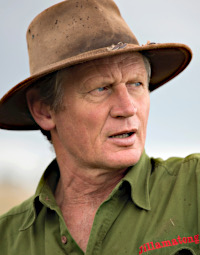 |
Martin Royds Martin Royds is a fifth generation beef cattle farmer from Braidwood, NSW who runs Jillamatong Beef as a regenerative farmer, using holistic management, natural sequence farming, biodynamics and permaculture to build soil carbon and biodiversity. He manages cattle on 1600 hectares as a commercially profitable and regenerative venture, and avoids chemicals, embraces no-till farming and is passionate about working with nature to build farm resilience. He is the Chair of Upper Shoalhaven Landcare Council, a Council Member with NSW Landcare, a founding member of the Natural Sequence Farming Association, and involved with Farmers for Climate Action. Jillamatong farm has also been featured as a case study for Soils for Life. |
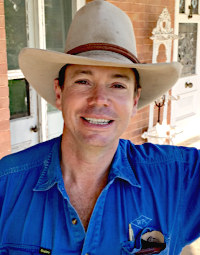 |
George King George King is a seventh generation Australian farmer and the fifth generation on his family property 'Coombing Park'. Taking over management in 1996 he saw the productive capacity of the property was degraded, attended an HM course with the late Bruce Ward, and using HM principles was able to cut the input and operating costs of the business. Twenty-two years on, George is profitably running 'Coombing Park' with no permanent staff, while major capital works include a new RFDS spec airstrip, new 4,000 head capacity cattle yards, three large sheds and renovations to all the convict buildings. His latest project is the development of an app, www.onfarm.co, a platform for farmers to connect, collaborate and trade, to encourage regenerative agricultural practices globally. |
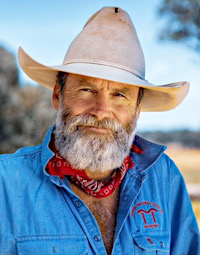 |
Charlie Arnott Charlie Arnott is an award-winning grazier from Boorowa, New South Wales, Australia, an educator and passionate advocate for Regenerative Farming practices. Today his property Hanaminno is managed using organic, biodynamic and holistic grazing principles, and produces beef, lamb and pigs, handled in a ‘low stress stock’ fashion, and not treated with hormones, vaccines or drenches. Charlie has received agricultural industry awards for leadership, resource management and conservation, more recently the prestigious Bob Hawke National Landcare Award 2018, which acknowledges a person who has demonstrated a remarkable commitment to caring for the land, champions better practices, and gives their time to share knowledge with others. |
 |
Emily Little Emily's roots in agriculture grew out of a deep concern for the environment, animal welfare, rural communities and landscape regeneration. She co-manages multi-enterprise Old Hill Farm on NSW’s Mid-North Coast, providing pastured lamb, vegetables, and sustainably sourced timber. In November 2019, Emily and her husband were forced to flee their home when the bushfires tore through the village of Bobin. They have only recently returned to their land to begin the task of rebuilding from scratch. Their work now focuses on engaging the wider community in landscape restoration to mitigate future climate-fuelled extreme events. In addition, Emily is a key coordinator of the Young Famers Connect (YFC), providing assistance and resources for young or new farmers who are entering the industry. |
